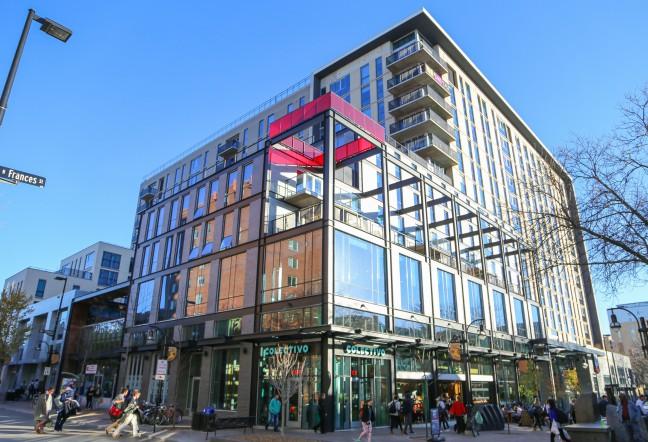In light of recent housing trends and reports, the city is debating the possibility of creating new affordable housing to handle the influx of millennials in the Madison housing market.
Madison millennials have a predominant tendency to rent space rather than purchase permanent housing due to certain barriers to entry in the permanent housing market. This keeps rents high and makes the Madison housing market economically inefficient, Matthew Wachter, Madison’s housing initiatives specialist, said.
Madison has seen an appreciable increase in its millennial population in recent years. This may be attributed to the sizable and desirable companies like Epic Systems bringing recent college graduates to Madison to work, Timothy Riddiough, professor in Wisconsin School of Business’ Department of Real Estate and Urban Land Economics, said.
But millennials may be deterred from moving to Madison because of a lack of affordable housing for their demographic, Wachter said.
“The lack of affordable housing options drives away a whole host of workers,” Wachter said. “They see it as a barrier.”
Riddiough said consistent increases in income inequality coupled with an increase in high-income millennials’ renting space in Madison has made the housing market problematic for low-income millennials.
As a result of high-income individuals affecting rents in the rental housing market and barriers to entry in the permanent housing market, low-income millennials are encountering difficulties entering the Madison housing market, Riddiough said.
“Madison now has affordable housing problems in a more severe way than they perhaps have ever had,” Riddiough said.
These affordable housing problems stem primarily from an increase in demand for scarce housing coupled with high construction costs, which disincentives constructing new affordable housing, Anne Morrison, an employee at Urban Land Interests in Madison, said.
Morrison said it is possible for the city to drive rents down and alleviate the affordable housing shortage by increasing its supply of affordable housing, but the city will have to subsidize developers for this course of action to be feasible.
“To some extent, it’s not possible to build truly affordable housing right now without subsidies because construction costs are such that you can’t build at a price that allows you to make it affordable to people who are in the lower income bracket,” Morrison said. “It’s true today more so, but it’s true always that it’s difficult to build affordable housing without subsidies, if not impossible.”
Increased city intervention in the housing market may be a feasible solution to the issue, but city officials would have much to discuss before considering stepping up city involvement in the housing market, Riddiough said.
Madison has traditionally meddled in its housing market significantly less than other major metropolitan areas like New York or San Francisco, where city interference in the housing market is constant, Riddiough said.
“There’s certainly a strong case for the city to be involved,” Riddiough said. “I’m sympathetic to that, but on the other hand you’ve got to sort of try to get it right — in terms of not distorting things in other directions.”
There has also been some debate over the degree of state interference that should exist in the Madison housing market, Wachter said.
Wachter said the city’s current strategy for advocating affordable housing relies heavily upon collaboration with the state and federal government.
“The state contributes a significant amount of the funds that we’re going to put up for affordable housing,” Wachter said.
The city has attempted to improve its housing market previously. Roughly a decade ago, the city distributed housing subsidies to low-income individuals so they could afford condominiums that would otherwise be out of their price-range, Riddiough said.
This program ultimately went nowhere due to insufficient interest in the condos, illustrating the difficulty of tailoring policies to the idiosyncrasies of Madison’s housing market, Riddiough said.
“It’s not always easy to set all the details right on the programs,” Riddiough said. “That’s the law of how unintended consequences work when you regulate.”
















